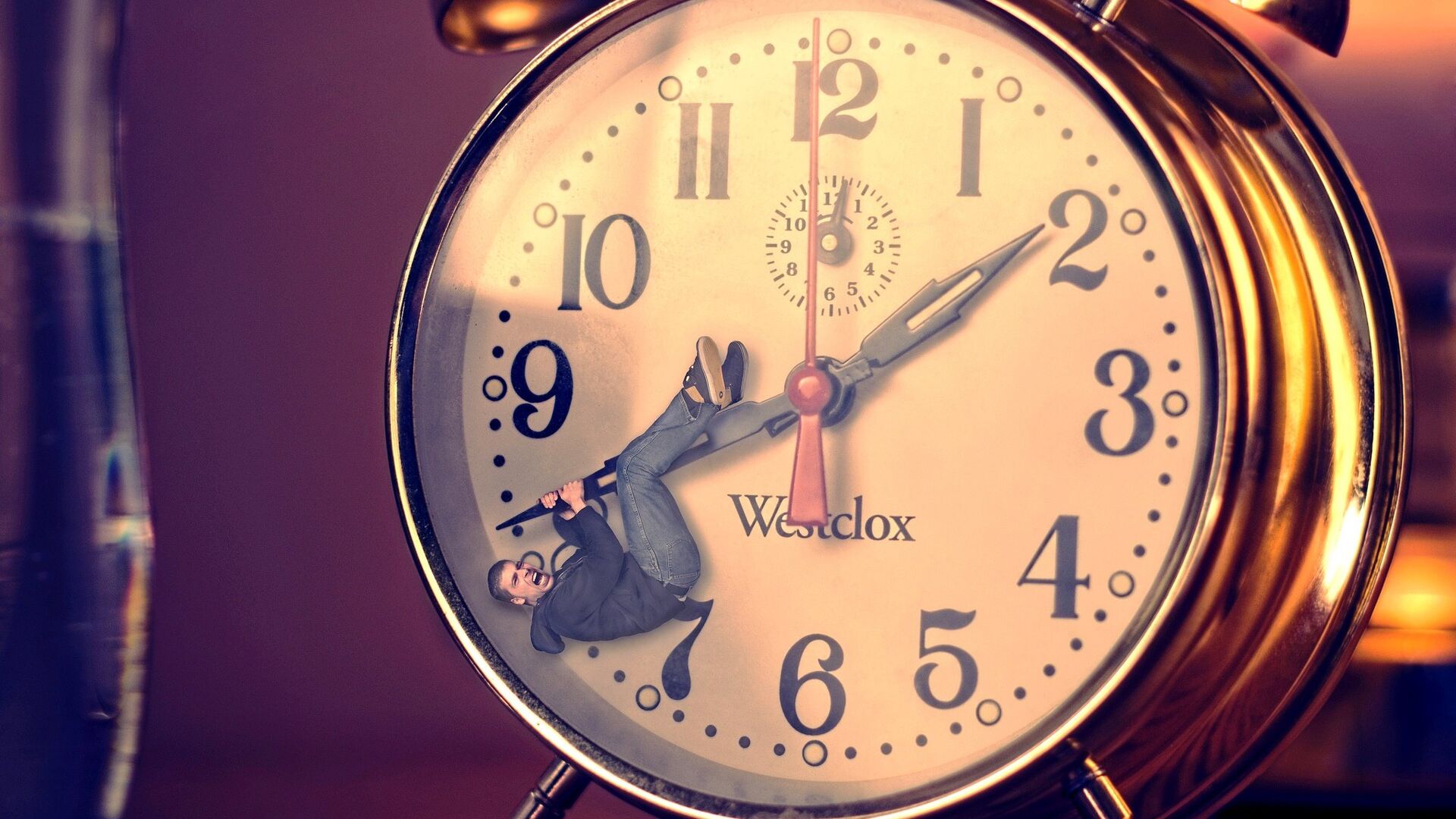https://sputnikglobe.com/20221108/you-snooze---you-lose-scientists-say-sleeping-through-multiple-alarms-may-be-bad-idea-1103891268.html
You Snooze - You Lose? Scientists Say Sleeping Through Multiple Alarms May Be Bad Idea
You Snooze - You Lose? Scientists Say Sleeping Through Multiple Alarms May Be Bad Idea
Sputnik International
Some days it’s torture to crawl out of bed, so many are naturally tempted to press the "snooze button" and spend 10 more minutes between dreams and reality... 08.11.2022, Sputnik International
2022-11-08T12:09+0000
2022-11-08T12:09+0000
2023-04-21T10:42+0000
sleep
science & tech
bed
https://cdn1.img.sputnikglobe.com/img/103343/60/1033436089_0:156:2049:1308_1920x0_80_0_0_9d128ce2b7449084a4b56a394fe110f7.jpg
According to US scientists, people who regularly hit the snooze button on their alarm may face considerable risks. A major study involving 450 adults, using surveying and wearable devices, showed that habitual snoozers showed more signs of sleep disturbance.At the same time, Mattingly suggested that snoozing may be a way for people to battle exhaustion – since medical data estimates that one in three Americans does not get enough sleep on a regular basis. He also noted that "night owls" tend to snooze more and were found to be more tired in general.The researchers concluded by saying that sometimes snoozing could actually be beneficial, noting that there is still "so much that we do not know" on the issue.
Sputnik International
feedback@sputniknews.com
+74956456601
MIA „Rossiya Segodnya“
2022
Evgeny Mikhaylov
https://cdn1.img.sputnikglobe.com/img/07e4/09/07/1080390164_0:0:1440:1440_100x100_80_0_0_46c187f2ab0908f86849a7d09a7def57.jpg
Evgeny Mikhaylov
https://cdn1.img.sputnikglobe.com/img/07e4/09/07/1080390164_0:0:1440:1440_100x100_80_0_0_46c187f2ab0908f86849a7d09a7def57.jpg
News
en_EN
Sputnik International
feedback@sputniknews.com
+74956456601
MIA „Rossiya Segodnya“
Sputnik International
feedback@sputniknews.com
+74956456601
MIA „Rossiya Segodnya“
Evgeny Mikhaylov
https://cdn1.img.sputnikglobe.com/img/07e4/09/07/1080390164_0:0:1440:1440_100x100_80_0_0_46c187f2ab0908f86849a7d09a7def57.jpg
sleep deprivation, snoozing, snooze button, alarm clock, snoozing research
sleep deprivation, snoozing, snooze button, alarm clock, snoozing research
You Snooze - You Lose? Scientists Say Sleeping Through Multiple Alarms May Be Bad Idea
12:09 GMT 08.11.2022 (Updated: 10:42 GMT 21.04.2023) Some days it’s torture to crawl out of bed, so many are naturally tempted to press the "snooze button" and spend 10 more minutes between dreams and reality. While this may seem extremely alluring, there could actually be really bad consequences for your health, researchers suggest.
According to US scientists, people who regularly hit the snooze button on their alarm may face considerable risks.
A major study involving 450 adults, using surveying and wearable devices, showed that habitual snoozers showed more signs of sleep disturbance.
“Most of what we know about snoozing is taken from data on sleep, stress or related behaviors,” said Stephen Mattingly, lead author of the study who conducted the research while a postdoctoral researcher at Notre Dame with Aaron Striegel, professor of computer science and engineering at Notre Dame. “Alarm clocks, smartphones, they all have snooze buttons. The medical establishment is generally against the use of snoozing, but when we went to look at what hard data existed, there was none."
At the same time, Mattingly suggested that snoozing may be a way for people to battle exhaustion – since medical data estimates that one in three Americans does not get enough sleep on a regular basis.
He also noted that "night owls" tend to snooze more and were found to be more tired in general.
The researchers concluded by saying that sometimes snoozing could actually be beneficial, noting that there is still "so much that we do not know" on the issue.


